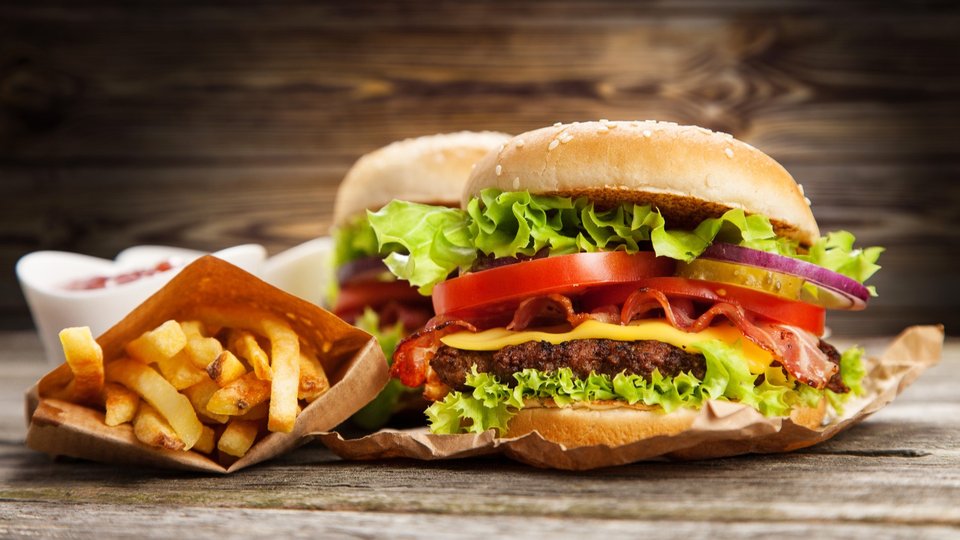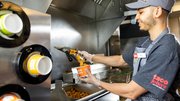Operations
How innovations in food packaging paving way for QSRs
Packaging shouldn't be a secondary thought when it comes to your menu.

August 16, 2024 by Felicity Kelly — Head of Sustainability, Bunzl Express
For consumers, convenience and quality have always reigned supreme, but environmental concerns have recently begun to transform expectations. QSRs are now pressured to deliver more than simply convenient and delicious food. Customers increasingly demand dining options that align with their lifestyles and values. The role of packaging has never been more critical, and innovative solutions in food packaging are radically changing the industry in terms of how food is presented, preserved, and transported.
Compostable packaging materials can significantly reduce environmental impact while enhancing customer engagement. The latest food packaging technology is helping restaurants maintain food quality while improving customer convenience and increasing sustainability.
Innovations in food packaging
The quick-service restaurant industry generates enormous amounts of packaging waste, contributing to landfill overflow and harming the environment. Traditional materials used for food packaging in the restaurant industry can often take hundreds of years to decompose and harm the planet; however, consumers are becoming more aware of the current environmental crisis, demanding more sustainable options from their favorite quick-service restaurants.
Restaurants need to adopt sustainable practices to avoid losing customers to competitors. Fortunately, several innovative packaging solutions are already available to the restaurant industry that offer hope for a greener future. These creative materials and technologies include:
Compostable packaging: Plant-based bio-plastic packaging materials derived from natural sources such as corn or sugar cane and paper-based materials are practical and popular alternatives to traditional petroleum-based plastic. These plant-based materials will break down In composting facilities to produce nutrient-rich compost. Traditional petroleum-based plastic materials have minimal recycling options, and over 90% can end up in landfill sites or our oceans.
Many quick-service restaurants are shifting towards plant-based materials such as bagasse as alternatives to plastic cups, bowls and containers.
Recyclable packaging:There are a slew of popular fast-food industry giants and other large chain restaurants moving towards paper-based packaging for items like straws and burger wrappers, as these are more easily recyclable than traditional plastic alternatives. Innovations like mono-material packaging, which uses just a single type of material, simplify the recycling process by eliminating the need for separation during recycling.
Smart packaging: Smart packaging technologies using QR codes allow customers to access additional information on nutrition, ingredients, and even promotional content. Restaurant operators can use smart packaging for their inventory management and to improve efficiency, which reduces food waste. Smart Packaging technology can enhance the customer experience and provide valuable data for quick-service restaurants to optimize their operations and marketing.
Edible packaging: Edible packaging is an innovative approach that aims to eliminate food packaging waste by making the packaging part of the food itself. Though in the early stages of adoption in the industry, some working examples include edible straws made from seaweed and edible films for wrapping sandwiches or burgers. Edible packaging is a promising technology driven by consumer demand that could significantly reduce food packaging waste in the near future.
Benefits of innovative food packaging in QSRs
Quick-service restaurants have had to evolve in recent years to meet changing consumer preferences and environmental concerns. A key area of innovation in the food industry is packaging, which is easily recyclable or compostable. In the current consumer environment, more than basic functionality as packaging is required. Consumers now demand enhanced satisfaction and a reduction in ecological impact.
This shift in consumer demand has led to significant advancement in modern packaging solutions in the fast-food industry. These packaging advancements focus on three main areas: customer experience, operational efficiency, and environmental impact. Modern packaging solutions are not just about holding food; they blend functionality with aesthetics and environmental impact, making every meal more enjoyable and convenient while causing less harm to the planet. Here's how:
Enhanced customer experience
Attractive and well-designed packaging can significantly increase visual appeal and transform food perception. Stylish wrappers and boxes can even elevate the perceived quality of the food with consumers. However, in the quick-service restaurant model, convenience is paramount. So, any stylish or innovative packaging will still require convenient features like easy-to-open seals and lids, making it more straightforward for customers to enjoy their meals.
Modern packaging must be designed with both functionality and aesthetics in mind.
- Better food presentation: Attractive packaging can make food look more appealing and higher quality, enhancing the overall dining experience. For instance, salad containers with clear lids allow fresh and colorful ingredients to be on display, while stylish wrappers and boxes elevate the perceived quality.
- Ease of use: Making it easier for customers to enjoy their meals by using easy-to-open seals and lids that are both convenient and secure, stackable containers so food arrives intact, and portion control packaging. These features increase convenience and help to ensure a positive experience.
Operational efficiency
Modern packaging solutions can also make quick-service restaurants more efficient by streamlining operations:
- Reduced waste: Innovative packaging solutions can minimize food waste using features such as portion control packaging to serve the right amount of food and reduce leftovers.
- Improved inventory management: Smart packaging technologies can help track inventory and expiration dates using QR codes to reduce spoilage.
- Enhanced logistics: Durable and stackable food packaging solutions enhance food storage and transportation, ensuring that food remains intact and presentable upon customer delivery.
Environmental Impact
Compostable and recyclable food packaging materials can significantly reduce landfill waste and pollution. When these compostable materials are properly processed in a local composting or recycling facility, the materials break down into useful organic matter rather than troublesome waste products. So, they enrich the soil rather than pollute it like traditional plastic. Adopting sustainable packaging will reduce the carbon footprint of the food industry as the materials generally require much less energy to produce compared to traditional plastics. In addition, new plastic production can be reduced.
Final thoughts and takeaways
The shift to compostable and recyclable packaging in quick-service restaurants offers many significant environmental benefits and efficiency improvements, but there are also some challenges. Any effective composting process requires industrial composting facilities, which are currently very limited. To maximize benefits, the government and industry must invest in proper waste management infrastructure, while consumers must continue pushing for cleaner, greener materials and processes. The success of innovative compostable or recyclable food packaging relies on improving and increasing the number of waste management systems and continuing to educate consumers.
About Felicity Kelly
Felicity Kelly is the Head of Sustainability at Bunzl Australia & New Zealand. She assists organizations in enhancing their sustainability performance and reputation, as well as managing their entire value chain through stakeholder engagement, communication, risk management, problem-solving, strategy development, and execution. Felicity holds a Master's degree in Corporate Environmental and Sustainability Management from Monash University. She has extensive experience working across various sectors, primarily in Fast-Moving Consumer Goods (FMCG) and logistics
 ChatGPT
ChatGPT Grok
Grok Perplexity
Perplexity Claude
Claude








